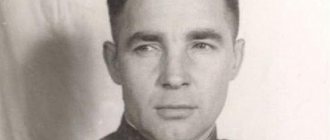Stanislav Lem
"Solaris"
Arrival
At nineteen o'clock onboard time, I went down the metal steps into the container. There was just enough room to raise your elbows. I inserted the tip of the hose into the fitting protruding from the wall, the suit swelled, and I could no longer make the slightest movement. I stood, or rather sat, in an airy bed, forming a single whole with the metal shell.
Raising my eyes, I saw through the convex glass of the walls of the well and above the face of Moddard bending over him. Then the face disappeared and it became dark - the heavy safety cone was closed at the top. The whistle of electric motors, which were tightening the bolts, was heard eight times, then the squeak of air in the shock absorbers. My eyes adjusted to the darkness. I've already seen the greenish outline of the universal pointer.
“Ready, Kelvin?” - came through the headphones.
- Ready, Moddard. – I answered.
- Do not worry about a thing. The station will accept you,” he said. - Bon Voyage!
I didn’t have time to answer - something scraped above me and the container shook. Instinctively, I tensed my muscles. But nothing else happened.
- When does it start? - I asked and heard a noise, as if grains of the finest sand were falling onto the membrane.
- You're already flying, Kelvin. Be healthy! – answered Moddard’s close voice.
Before I fully realized it, a wide gap opened right in front of my face, through which I saw stars. In vain I tried to find Alpha Aquarius, to which the Prometheus was flying. This region of the Galaxy was completely unknown to me. Sparkling dust flashed through the narrow window. I realized that I was in the upper atmosphere. Motionless, surrounded by pneumatic cushions, I could only look in front of me. I flew and flew, not feeling it at all, I only felt how gradually my body was insidiously engulfed by heat. The viewing window was filled with red light. I heard the heavy beats of my own pulse, my face was burning, my neck was tickled by the cool stream from the air conditioner. I regretted that I was not able to see the Prometheus - when the machine guns opened the observation window, it was probably already out of sight.
The container roared once, twice, then its body began to vibrate. This unbearable trembling passed through all the insulating shells, through the air cushions and penetrated into the depths of my body. The greenish outline of the pointer was blurred. I didn't feel afraid. It was not for the same reason that I flew such a distance to die at the very target.
“Solaris Station,” I said. - Solaris station. Solaris Station! Do something. I think I'm losing my stability. Solaris station, I'm Kelvin. Reception.
I missed the important moment of the appearance of the planet. She was spread out, huge, flat; Judging by the size of the stripes on its surface, I realized that I was still far away. Or rather, high, because it has already passed that invisible border, after which the distance to a celestial body becomes height. I was falling and felt it now, even when I closed my eyes.
After waiting a few seconds, I repeated the call. And again I received no answer. The crackle of atmospheric discharges was repeated in volleys in the headphones. Their background was noise, deep and low. It seemed to be the voice of the planet itself. The orange sky in the observation window became a thorn. The glass darkened. I instinctively squeezed as much as the pneumatic bandages allowed, but the next second I realized that these were clouds. They rushed upward like an avalanche. I continued to plan, now blinded by the sun, now in the shadows. The container rotated around a vertical axis, and a huge, seemingly swollen, solar disk evenly floated past my face, appearing on the left and going to the right. Suddenly, through the noise and crackling, a distant voice rushed straight into my ear.
– Solaris Station – to Kelvin, Solaris Station – to Kelvin. Everything is fine. You are under the control of the Station. Solaris station - Kelvin. Prepare to land at time zero. Attention, let's begin. Two hundred fifty, two hundred forty nine, two hundred forty eight...
Individual words fell like peas, clearly separated from each other; It looked like the machine was talking. Strange. Usually, when someone new arrives, especially from Earth, everyone who can runs to the landing site.
However, there was no time to think. The huge ring outlined around me by the sun suddenly reared up along with the plain flying towards me. Then the tilt changed in the other direction. I dangled like the weight of a huge pendulum. On the rising wall of the planet’s surface, streaked with dirty purple and brown stripes, I saw, fighting against dizziness, white and green chess squares - the identification mark of the Station. At that moment, the long collar of the ring parachute came off from the top of the container with a crash and rustled loudly. There was something inexpressibly earthly in this sound - the first, after so many months, the sound of real wind.
What happened next happened very quickly. Until now I only knew that I was falling. Now I saw it. The green and white chessboard grew rapidly. It was already clear that it was painted on an elongated, whale-shaped silver-shiny body with radar needles protruding from the sides, with rows of darker window openings, that this metal giant did not lie on the surface of the planet, but hung above it, dragging along the inky black its shadow against the background - an elliptical spot of even deeper blackness. At the same time, I noticed the lazily rolling waves of the ocean covered in a purple haze. Then the clouds went high up, covered at the edges with a dazzling purple, the sky between them was distant and flat, brownish-orange. In the observation window, the ocean, waving up to the smoky horizon, sparkled with a mercury sheen, the cables and rings of the parachute instantly separated and flew over the waves, carried away by the wind, and the container began to gently sway with special free movements, as is usually the case in an artificial force field, and fell down. The last thing I saw were huge lattice catapults and two openwork mirrors of radio telescopes rising, probably to the height of several floors.
Three visits to Solaris: from Lem through Tarkovsky to Soderbergh
Humanity in inhuman conditions
After the teleplay, Lem decided on another alliance with cinema. According to the writer, the mere mention of Tarkovsky’s name made him agree to the film adaptation. The ideological and visual solution for the new version had yet to be found:
“For now, only one thing is clear: the film will be in black and white. As for the rest, I hope we will find a common language here too.”
The writer made a mistake twice.
Even before starting work on the script, Lem admitted that he, as an author, interprets the novel in two ways, as an exploration of the knowledge of the unknown and as “a mental experiment set up to once again explore the human mind, will, and ability to fight.” The writer was sure that Tarkovsky understood his novel just as he himself did.
However, disagreements between the writer and director were not long in coming. On the script, Andrei Tarkovsky worked together with the writer and screenwriter Friedrich Gorenstein, whom the director highly appreciated. As cameraman Yuri Veksler noted, according to Gorenstein, “at the core of man, despite the divine plan, lies the devil, Satanism, and great efforts must be made to protect him or prevent the evil from manifesting itself.” This view of man was close to Tarkovsky. It was thanks to Gorenstein that episodes of Chris’ farewell to his father’s house appeared in Solaris. Lem did not like this, and he asked Tarkovsky to significantly rework the script. He wanted:
- shorten the episodes on Earth;
- remove the storyline with Maria, Chris's wife;
- introduce the history of solar science not through lengthy dialogues of scientists, but try to find a different way;
- move the ending from Earth to Solaris.
The main thing in Tarkovsky’s vision was moral issues, which Lem did not have. With his painting, he wanted to prove that, despite the conditions, the problem of moral purity and perseverance “permeates our entire existence.” Tarkovsky "was interested in the hero of the novel, Chris Kelvin, because he had to remain human, despite the fact that he was outside the human situation."
In Tarkovsky's film adaptation, Chris is the only one who treats his guest as a living person. And if Lem’s Doctor Snout speaks about the stupidity of such behavior (“It may be beautiful, but it’s useless”), then in Tarkovsky’s interpretation of Chris’s words about human behavior, the already “humanized” Hari pronounces with approval.
In the film, the relationship between Chris and Hari comes to the fore. According to Tarkovsky, the center of the novel lies in the inner world of man, and not in the problem of contact with extraterrestrial intelligence. The message fits into the formula: “A person needs a person.”
Lem did not accept this interpretation and accused Tarkovsky of Dostoevsky, saying that he filmed “Crime and Punishment” and not “Solaris”:
“The only thing that follows from the film is that the vile Kelvin drove poor Hari to suicide, and then for this reason he was tormented by remorse, which was intensified by her appearance, and her appearance in strange and incomprehensible circumstances.”
The writer insightfully saw in the footage the director’s unrealized dream of making a film based on Dostoevsky’s “The Teenager.” However, he was not allowed to do this and, according to the art editor of Solaris, Lazar Lazarev, the management hoped that creating a film in the science fiction genre would cool his impulse.
The science fiction genre was not close to Tarkovsky. What upset him most was that in all films of this kind, the authors always “force the viewer to consider the details of the material structure of the future.” Tarkovsky did not want to show technical achievements, but to raise the moral problem of life outside of human conditions. In 1968, Stanley Kubrick's newly released film 2001: A Space Odyssey caused him total rejection:
“It’s a funky atmosphere, like being in a museum showcasing technological advances.”
Film critic Olga Surkova later confirmed that Tarkovsky "viewed his film as a humanistic response to what Stanley Kubrick was doing."
Returning to Solaris
Today, when starting a conversation about the film “Solaris”, we have to clarify whether we are talking about Hollywood cinema or about the classic film by Andrei Tarkovsky. The American version of Solaris, in my opinion, compared to the background of both Lem’s novel and Tarkovsky’s film, is a very, very weak movie. And like any weak movie, it is impossible to analyze it seriously and try to understand what the director was trying to follow - Lem’s scientific thinking or Tarkovsky’s parables. But the fact that our film turned out to be almost forgotten is, of course, unfair. We seem to perceive this repression, this loss as the norm. Therefore, we can perhaps be glad that readers and viewers return to the book and its film adaptations again and again, discussing the questions posed in them.
Recently, on one forum, I saw a question about the differences between Stanislaw Lem's book "Solaris" and the films based on it. And I was surprised to read, for example, the following answers:
“I noticed some snobbery towards the viewer: hidden images, allusions in incredible quantities. Stanislav Lem, on the contrary, based on the plot, tries to give maximum open information.”
“I think that Tarkovsky is a wonderful moralizer, but a lousy director. Apart from a few episodes, the film is simply boring. It seems that Tarkovsky made the film for himself, but he didn’t care about us.”
“I think Tarkovsky is a wonderful moralizer, but a lousy director.” - “But in my opinion, rather, it’s the other way around.”
The discussion seems to have gone past the main issue...
I read the novel at the age of 13, watched the film at 15. And to me, a teenager, it didn’t seem at all that Tarkovsky was abstruse. On the contrary, I was shocked by what I saw... And I really wanted to become like Chris Kelvin, which he became after meeting his wife.
Yes, of course, the differences between the works are obvious; it was not for nothing that Lem swore that Tarkovsky was imposing his “Dostoevism” on him, a science fiction writer. So what exactly is the difference between the book and the movie? The writer was interested precisely in the problem of meeting a mind completely different from the human one. He modeled an assumption situation and built a hypothesis. I wanted to suggest what the consequences of such contact would be for two intellects - human and otherworldly. And Tarkovsky - through the mouth of one of the heroes - proclaimed what seemed to be the exact opposite interest: man is not interested in any other mind in the Universe, man needs man.
I say “it would seem” because if you read the novel carefully, you can find the source of this conceptual idea picked up by Tarkovsky. One of the heroes, Snaut, says: “...We don’t want to conquer space at all, we just want to expand the earth to its limits (...) We are not looking for anyone other than man. We don't need other worlds. We need our reflection” (translated by G. A. Gudimova, V. A. Perelman). For Lem, man's search for man is only part of the discussion about relationships with “other” minds. For Tarkovsky, it becomes the center of his film concept; the director, sharpening this theme and translating it into the register of an aphoristically succinct statement, forces Snaut to say somewhat differently: “Man does not need other worlds, man needs man...” So it turns out that, completely rejecting all of Lem’s science-fiction quests, Tarkovsky simply -simply used its plot as a means to pose a purely moral problem. Let us remember how Gibaryan tries to confess to his friend (he will later kill himself): “There’s something wrong with my conscience, Chris.”
This whole film is about conscience and repentance.
There lived a man and he had a wife, Hari. He grew cold towards her, did not want to spare her feelings, having lost faith in his own. In fact, he drove her to suicide. Unable to do anything about it, he is forced to live with such a terrible sin, deeply hiding the memory of it and the pangs of conscience deep in his soul. But he understood that everything around him was somehow... wrong. His father loves him, and he loves his father - but he cannot cling to him like a child; the beautiful, quiet family home always reminds him of something, and there is no particular joy in the house for him.
Around the hero is an urban world in which you can go crazy from just one trip on the highway. And such a “killed” by sin, a puppeted man, Chris Kelvin, is trying to escape to the Station, into space, away from the past. But the Station, unexpectedly for him, turns out to be a place where some Creator (God or an alien intelligence - Tarkovsky, in general, doesn’t seem to care) looks into the very heart of a person, finding there the image of someone whom a person would especially dream of forgetting. By embodying images in living bodies, he sends to the inhabitants of the Station those people towards whom they are especially terribly guilty. So Chris's long-dead wife comes to him.
At first, the hero tries to treat this meeting in the same way as other inhabitants of the Station (except for Gibaryan: he chose suicide) - he tries to destroy his past. But the thing is that at the Station you can’t run away from the past. And Chris “suddenly” decides to believe and repent. To believe that in front of him is not a phantom, but really his wife, in the flesh. He decides to give her that love and that loyalty that he once stinted on. And he himself begins to come to life, to become real, conscientious, compassionate not only to her, but also to all the unfortunate martyrs of this Station. And no matter how much they try to convince him that this is all in vain, because here space and everything is unreal, he no longer allows himself to be deceived. And it is his open heart that makes this strange Creator notice Chris’s suffering and respond to him meaningfully.
Chris could not keep the woman he loved - she died. But he finally threw himself on his knees in front of his father. Or before the Heavenly Father - that’s whoever wants to interpret the last scene of the film, which quotes Rembrandt’s “Return of the Prodigal Son”.
Tarkovsky’s film is a call not to lock your conscience, but to believe: on the one hand, to believe that there is a terrible power of indifference that kills, on the other hand, to believe in the great power of love.
“Solaris” is a film about how you won’t escape the pangs of conscience until you change, until you become different. And, of course, this, strictly speaking, is not an adaptation of the analytical novel by the science fiction writer Lem, but a parable, which in a sense is a rebuke to the author of the story. Stanislav Lem himself, who had quarreled with Tarkovsky for a long time, only many years later, having long outlived the director, began to change his point of view and think that disowning the film was the wrong step on his part.








